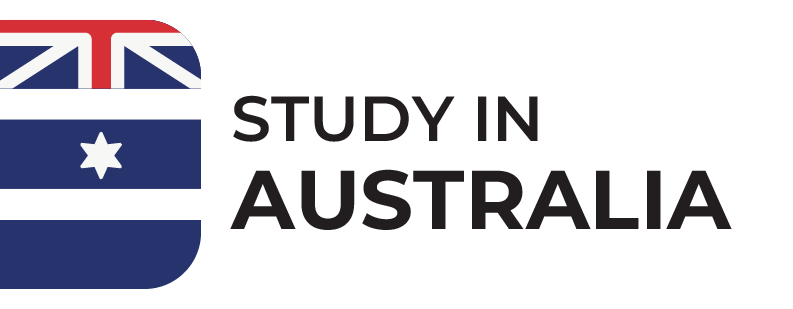Australia is one of the countries with the largest international student populations in the world. The costs of living in Australia, world-class universities, globally recognized qualifications, all these contribute to the popularity of this study destination. When it comes to the Australian higher education, 7 Australian universities are ranked among the top 100 universities in the world, with the others following not far behind. International students love Australia, with the majority of the population living near the coast, the mesmerizing beaches, and unique culture – it is all truly remarkable.
Many choose Australia due to its budget-friendly living costs in comparison to other study destinations. Although we can’t say things come cheap here, it is overall quite affordable. The living costs are one of the most important things students consider when deciding to go abroad and pursue their degrees. The tuition fees, rent, everyday expenses, all these and much more can be quite a challenge. But, the first step towards getting everything right and spending your study days without worrying about money is if you plan right. So, initially, let’s go through the costs of living in Australia, and then you can get to planning. Besides, a monthly-budget calendar might just be one of your best friends while in a foreign country.
Table of Contents
Education Costs in Australia (Tuition Fees)
The education costs change in different levels of study and types of qualification. See below for the average costs of education (in AUD), excluding veterinary and medical courses, according to the calculations of the Australian Government:
| Level of Study | Average Yearly Cost |
| Undergraduate Bachelor Degree | $20,000 to $45,000 |
| Postgraduate Masters Degree | $22,000 to $50,000 |
| Doctoral Degree | $18,000 to $42,000 |
| Vocational Education and Training | $4,000 to $22,000 |
| English Language Studies | Around $300 per week |
| School | $7,800 to $30,000 |
Living Costs in Australia
According to statistics from October 2019, the 12-month living costs range as follows:
- Students or Guardians: $21,041
- Dependents (Partners accompanying you): $7,362
- Dependents (Child coming with you): $3,152
These are especially important when it comes to the financial requirements you are supposed to meet in order to be granted a student visa to Australia. The Department of Home Affairs always requests proof that you can cover your living expenses during your stay in Australia.
Accomodation Costs in Australia
Australia offers a wide range of accommodation options. Taking into consideration that more than 80% of the population live near the coast in Australia, it is highly likely that you will absolutely love the accommodation options you are offered. However, the costs of accommodation are not always constant since it depends where you will be living, the size of the flat (if you will be renting), the location (urban areas are often more expensive), whether you will be sharing a flat or not, and so on. However, below you will see the average pricing depending on the type of accommodation:
| Type of Accommodation | Average Cost |
| Hostel | $90 to $150 weekly |
| Shared Flat | $95 to $215 weekly |
| Rented Flat | $185 to $440 weekly |
| Campus Accommodation | $110 to $280 weekly |
| Homestay | $235 to $325 weekly |
| Boarding School | $11,000 to $22,000 yearly |
Monthly Rent in Australia
| Type of Apartment | Average Monthly Rent |
| 1-Bedroom Apartment in the City Centre | $1,665 |
| 1-Bedroom Apartment in the Suburbs | $1,276 |
| 3-Bedroom Apartment in the City Centre | $2,684 |
| 3-Bedroom Apartment in the Suburbs | $1,888 |
Additional Living Costs in Australia
Apart from paying tuition fees and rent, you will also need to consider the other additional living expenses you will be facing when you move to Australia. From buying groceries to paying bills, just add the following to your budget calendar.
| Additional Expenses | Average Cost |
| Groceries/Eating Out | $140 to $280 weekly |
| Gas/Electricity | $10 to $20 weekly |
| Public Transport | $30 to $60 weekly |
| Monthly Ticket Public Transport | $147 |
| Phone/Internet | $15 to $30 weekly |
| Other Activities | $80 to $150 weekly |
Food Costs in Australia
Let’s see how much specific food items cost in Australia calculated in Australian dollars, and make grocery shopping all the easier.
| Food Item(s) | Average Cost |
| Basic Lunch Menu (Drink Included) | $17 |
| Fast Food Combo Meal | $12 |
| 1 Liter of Whole Fat Milk | $1.24 |
| A Dozen Eggs | $5.36 |
| 1 kg / White Rice | $2.64 |
| 500 gr Local Cheese | $9 |
| 1 kg / Tomatoes | $5.08 |
| 1 kg / Apples | $4.32 |
| 1 kg / Potatoes | $3.35 |
| 1.5 Liters of Water | $2.20 |
| 0.5L Domestic Beer | $5.79 |
| 1 Bottle of Red Wine | $19 |
| 2 Liters of Coca Cola | $2.99 |
| Bread (for 2 people) | $2.78 |
Entertainment Costs in Australia
Studying in Australia means you will get to enjoy the authentic experience that this coastal country has to offer. So, whether you want to go on a date, watch a movie, or go to the gym, below you will see the average pricing you should include in your budget.
| Entertainment Type | Average Cost |
| Basic Dinner for Two | $54 |
| Two Movie Tickets | $36 |
| Two Theater Tickets (Best Seats) | $206 |
| 1 Cocktail Drink Downtown | $17 |
| A Cappuccino | $4.65 |
| 1 Month of Gym Membership | $71 |
| 1 Package of Marlboro Cigarettes | $34 |
Can I work while on my Student Visa?
If you feel like you need extra money, then the Australian student visa allows you to work 40 hours every two weeks and as much as you want during the holidays. The ideal work options with flexible hours for students include retail, hospitality, services, tutoring, and administration work among others. Working while studying is always a nice way to earn a little extra money and even learn more about the Australian culture.

